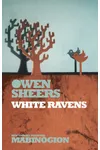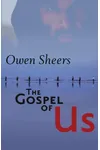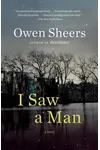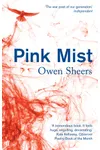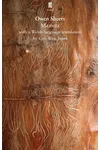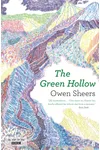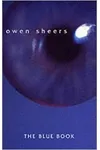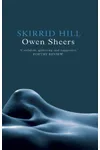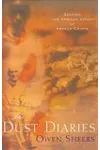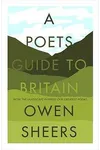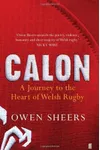Picture a Welsh storyteller who spun a tale of a Nazi-occupied Wales—meet Owen Sheers! Born in Fiji and raised in the rolling hills of Abergavenny, Sheers is a poet, novelist, and playwright whose lyrical words capture the heart of human struggle and connection. From his award-winning poetry to gripping novels, his work dances between the personal and the profound, making him a standout in contemporary literature.
With a knack for blending history, emotion, and landscape, Sheers has crafted stories that resonate across borders. Whether exploring war’s aftermath or the quiet beauty of rural life, his writing invites readers into worlds both familiar and hauntingly new. Ready to discover the magic of Owen Sheers? Let’s dive in!
The Making of Owen Sheers
Owen Sheers was born on September 20, 1974, in Suva, Fiji, but his heart belongs to Wales, where he grew up near Abergavenny. Educated at King Henry VIII School, he later studied at New College, Oxford, and earned an MA in Creative Writing at the University of East Anglia. A rugby enthusiast and former captain of Oxford’s Modern Pentathlon team, Sheers’s early life was as dynamic as his writing. His Welsh roots and love for storytelling shone through early, earning him the Eric Gregory Award in 1999 and kickstarting a literary career that’s still soaring.
Owen Sheers’s Unforgettable Stories
Sheers’s debut poetry collection, The Blue Book (2000), introduced his evocative style, weaving themes of family, first love, and rural Welsh life. Shortlisted for the Wales Book of the Year, it set the stage for his second collection, Skirrid Hill (2005), which won a Somerset Maugham Award for its sensuous imagery and emotional depth. His poetry often reflects the Welsh landscape and identity, influenced by poets like R.S. Thomas, whom Sheers credits for teaching him the beauty of economy in language.
In prose, Sheers shines just as brightly. His novel Resistance (2007) imagines a world where D-Day fails, and Wales falls under Nazi occupation. Translated into ten languages and adapted into a 2011 film, it showcases his ability to blend historical what-ifs with intimate human stories. I Saw a Man (2015), a psychological thriller, explores grief and moral ambiguity, earning praise for its taut narrative. His verse drama Pink Mist (2013), a heart-wrenching tale of soldiers returning from Afghanistan, won the Hay Festival Poetry Medal and cemented his reputation for tackling war’s emotional toll.
Sheers’s style is lyrical yet accessible, often grounding universal themes—loss, identity, and resilience—in specific places and moments. His work spans genres, from non-fiction like The Dust Diaries (2004), a Welsh Book of the Year winner about his missionary uncle in Zimbabwe, to innovative theater and BBC documentaries on poets like Dylan Thomas. This versatility keeps readers hooked and critics raving.
Why Owen Sheers Matters
Owen Sheers’s impact lies in his ability to make the personal universal. His stories of Welsh life, war, and human connection resonate globally, earning him accolades like the 2018 Wilfred Owen Poetry Award and a professorship at Swansea University. As the first writer-in-residence for the Welsh Rugby Union, he even brought poetry to sports, celebrating Welsh identity in Calon (2013). His commitment to truth-telling, as noted in a 2011 Independent interview, inspires new writers to explore their own narratives with honesty and heart.
Sheers’s work challenges readers to confront difficult questions—about war, loss, and belonging—while celebrating the beauty of language and place. His influence extends beyond books, shaping Wales’s cultural landscape through theater, film, and education. For anyone seeking stories that linger, Sheers is a must-read.
- Born: September 20, 1974, Suva, Fiji
- Key Works: The Blue Book, Skirrid Hill, Resistance, I Saw a Man, Pink Mist
- Awards: Somerset Maugham Award, Welsh Book of the Year (twice), Wilfred Owen Poetry Award
- Fun Fact: He found a rhyme for “orange” at age 10, winning 50p at a poetry show!
Snag Resistance or Pink Mist and dive into Owen Sheers’s lyrical world—your bookshelf will thank you!
